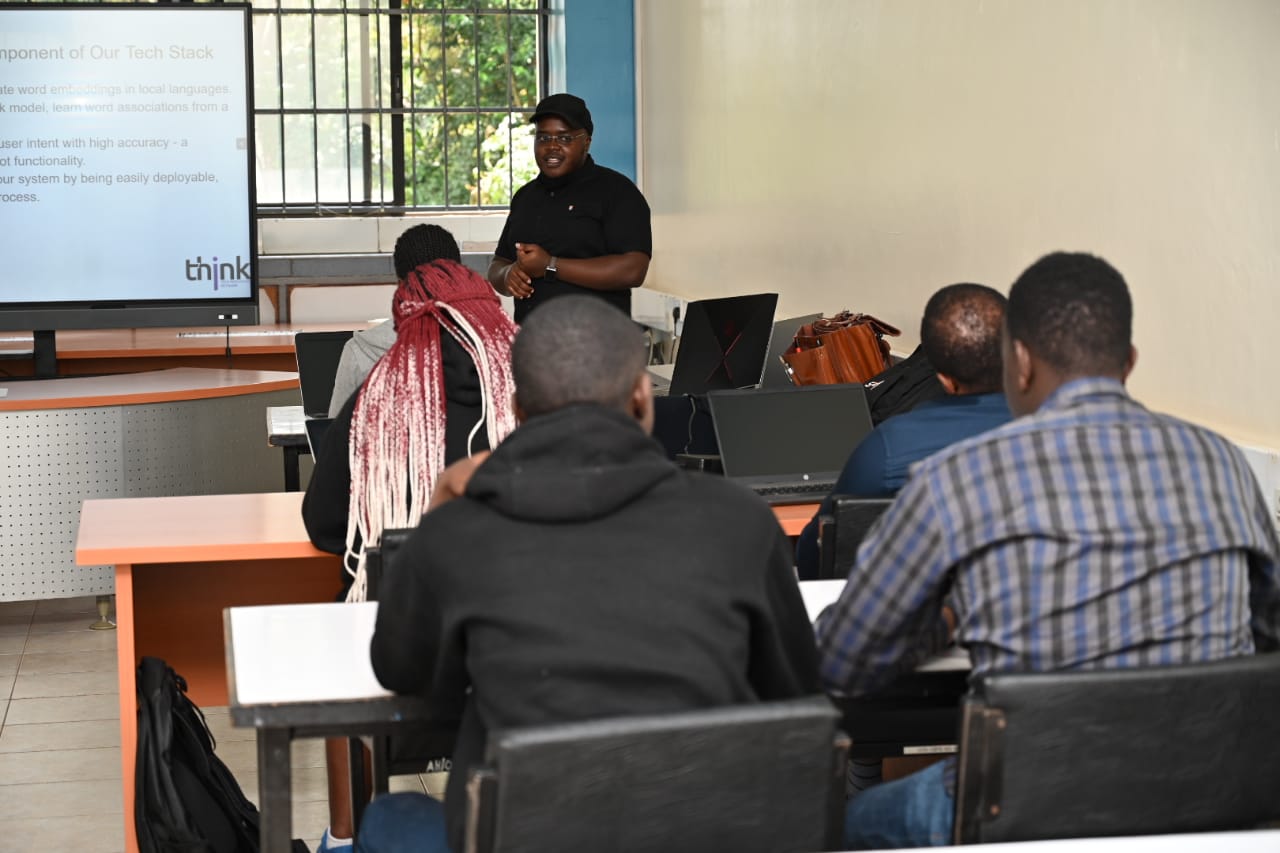A diverse, seasoned, and well-experienced team of development experts, economists, technologists, computer scientists, and research scholars, including Martin Mbaya, Robert Mudida, and Brian Omwenga of THiNK, contributed to the book “Consolidating the African Continental Free Trade Area: Portrait of a Common Market.“ The prolific book, edited by Francis Mangeni and Professor Seth Omondi Gor, aptly summarises the progress and challenges of the AfCFTA, emphasising the need for sustained political will and active engagement from stakeholders.
In the introduction, we are challenged to achieve a lofty goal that can change the trajectory of the African continent forever,
“The Economic Commission for Africa (2023) estimates that Africa accounts for 80% of global poverty. This is reason enough for the imperative that Africa unite, be ambitious and be in a hurry. That Africa must unite (Nkrumah 2007) to effectively address its developmental challenges is hardly disputed now, the continent has adopted Agenda 2063 with the vision of being “an integrated, prosperous and peaceful Africa, driven by its citizens, representing a dynamic force in the international arena” (AUC 2013). Achieving this vision will require a lot of hard work led by Africa, with a positive and optimistic outlook. Kenny and Gehan”
In a past and related paper on ICT ecosystems presented by Mbaya, Mudida and Omwenga, it is detailed that,
“Achieving Africa’s ambitious Agenda 2063 will require a continental, multi-sectoral innovation ecosystem, such as the African Continental Free Trade Area (AfCFTA)1 – a free market anchored by new institutions (or those yet to be established) whose success depends on the free movement of people across traditional borders. This free movement of goods and services is supported by logistics, payments and dispute resolution. Most importantly, the AfCFTA is envisioned as a digital, free trade area that is effectively an ICT innovation ecosystem.
In March 2018, 44 African countries signed the AfCFTA agreement at a business forum hosted in Kigali, Rwanda. Two months later, Kenya, Rwanda and Ghana, with the support of their respective legislatures, were the first three countries to deposit the instruments of ratification to the AfCFTA. This was an important step in the agreement’s implementation.
Using the AfCFTA to achieve Agenda 2063 requires innovative, inclusive, integrated governance systems that support the 4th Industrial Revolution. Such governance systems need to be structured to maximise the provision of public goods underpinned by a social contract, be aligned with systems of innovation, and embrace the Sustainable Development Goals (SDGs). This chapter highlights the experience of Kenya and Rwanda, two countries that have established governance systems for promoting ICT innovation and actively support the AfCFTA.”
Digitalization
“In parallel with economic integration, digitalization has become a key pillar in African policy and strategic development toolkits and continental regional integration objectives. As a step towards accelerating digitalization, the Digital Transformation Strategy (DTS) for Africa 2020-2030 identified establishing a Digital Single Market (DSM) as part of the integration priorities of the African Union. The forthcoming AfCFTA Digital Trade Protocol and the African Union Continental Harmonization Strategy towards a Single Digital Market by 2030 will shape countries’ alignment, build predictability and transparency, improve online market access, and strengthen the regulatory landscapes for cross-border flows in Africa. Efforts at building regional DSMs (or the like) have been explored at different levels by different regional groupings in Europe, Latin America, and Asia-Pacific. In the context of Africa, establishing a DSM requires careful scrutiny of the existing specific political, social, and economic conditions.Contributing to existing work promoting deeper integration under the AfCFTA, this chapter examines the concept of a DSM for Africa and how it fits into the African vision for integration and development, evidence of progress and gaps in the pre-conditions for success, and considerations for the possible pathways to leapfrog in this transformation.”
In Summary,
Digitalization stands as a cornerstone of progress in today’s rapidly evolving landscape, and its importance cannot be overstated. It is the essential catalyst for the economic growth needed in Africa. Embracing digitalization propels economic growth by enhancing process efficiency and driving productivity. This transformation empowers businesses to cut costs, boost output, and maximize profits in previously unattainable ways. Digital platforms transcend geographic boundaries, enabling seamless connections between companies and individuals worldwide. This interconnectedness unlocks new market opportunities, fosters collaboration, and cultivates an exchange of innovative ideas. Digitalization encourages innovation and provides organizations with the tools and data needed to fuel creativity. By embracing new technologies, businesses can develop groundbreaking products and services, remaining competitive in an agile market environment.
In conclusion, the transformative power of digitalization is a crucial driver of development and opportunity across all sectors. It equips societies to navigate change, seize new prospects, and realise a brighter future—an imperative as we build toward collective aspirations like the African Continental Free Trade Area (AfCFTA).
You can purchase the book in the link provided.
Sources
Mangeni, Francis . Consolidating The African Continental Free Trade Area: Portrait of a Common Market (p. 79). Zambian ARTS Publications. Kindle Edition.
Mbaya, M., Mudida, R., & Omwenga, B. (2018). Innovative Governance Systems–Kenya, Rwanda and the implementation of Africa’s Agenda 2063 through the AfCFTA.


